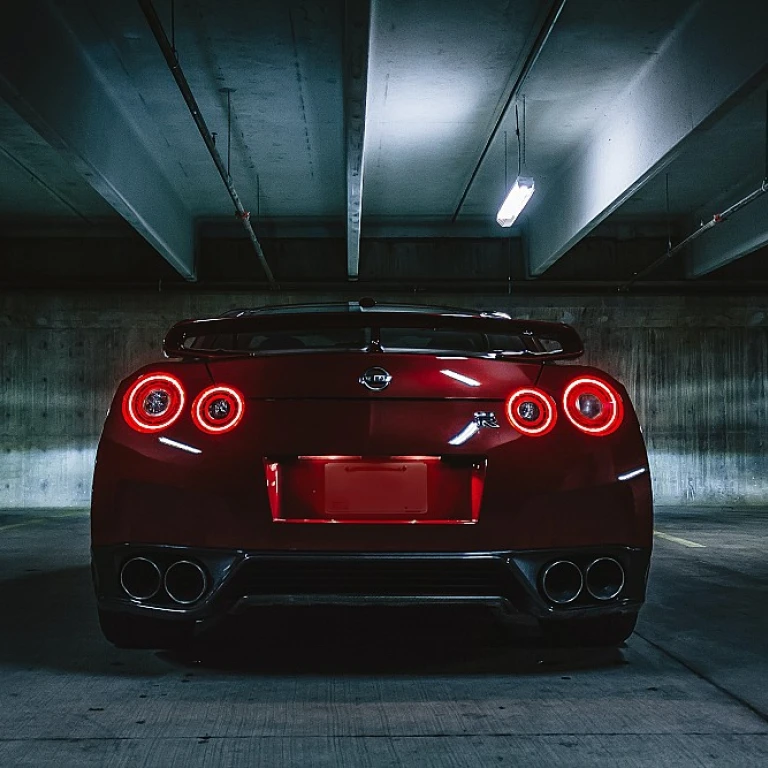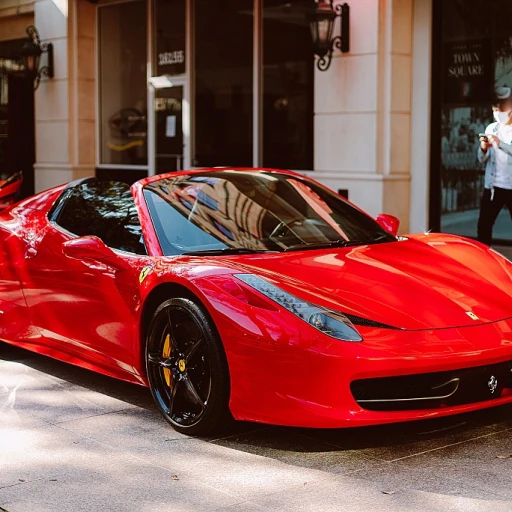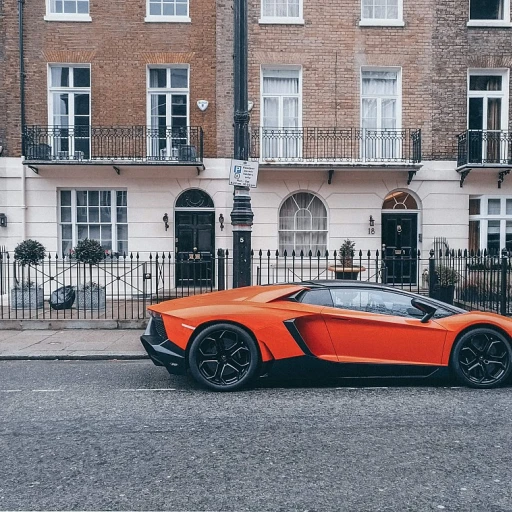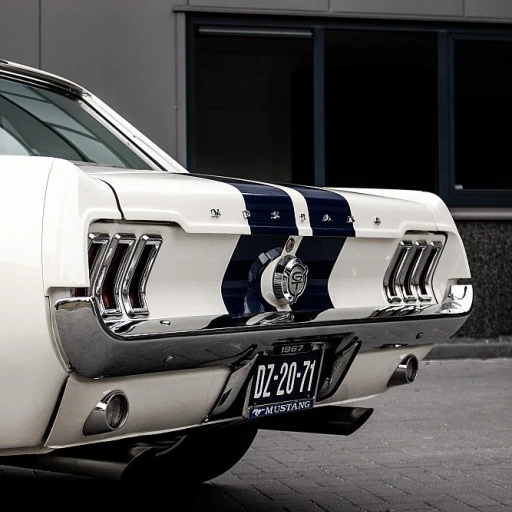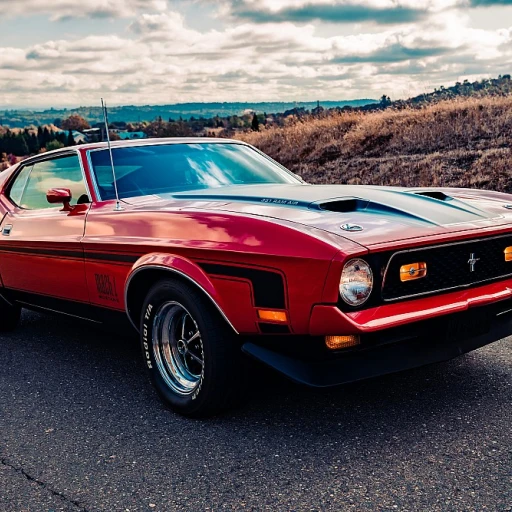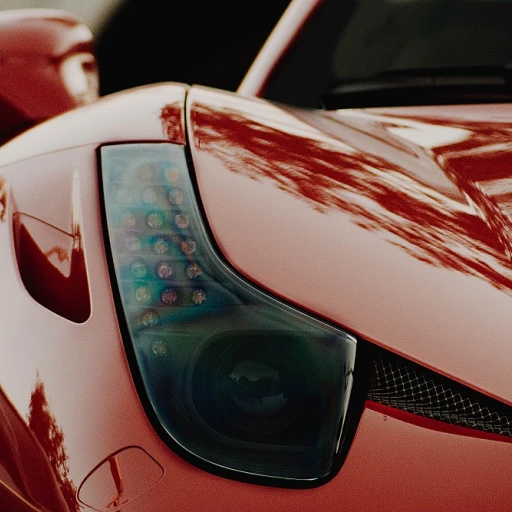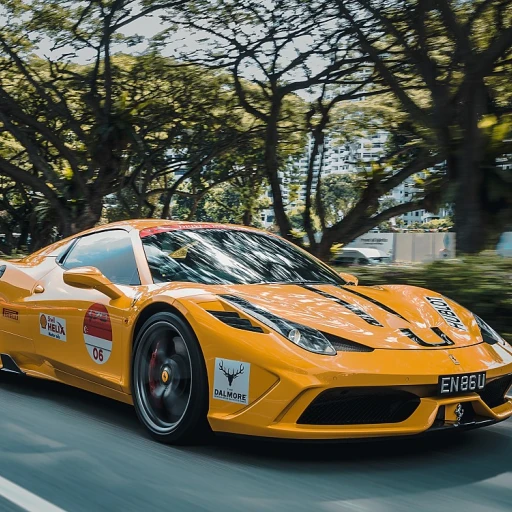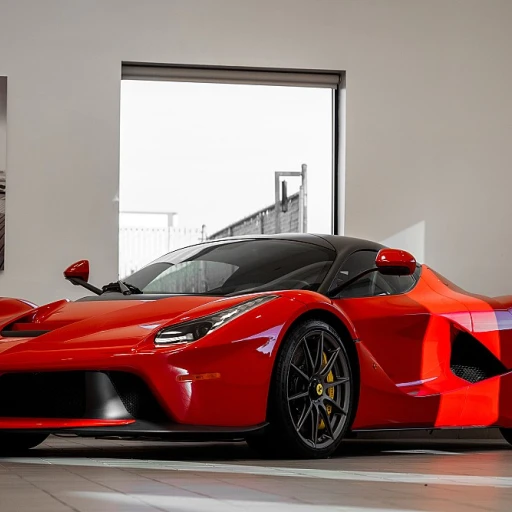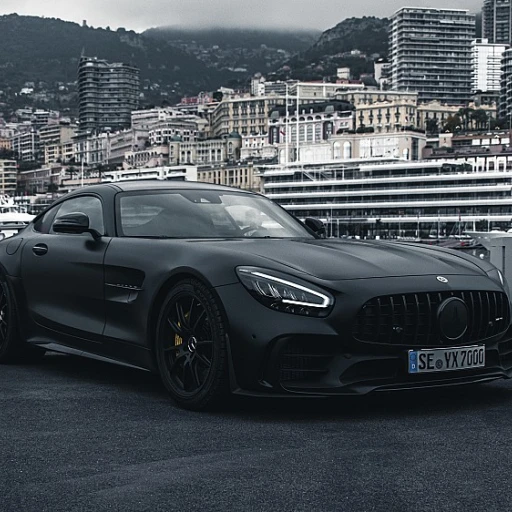
Understanding reliability in luxury cars
What Makes a Luxury Car Truly Reliable?
When discussing luxury cars, reliability is often as important as performance or prestige. For owners, a reliable luxury vehicle means confidence on the road, fewer unexpected repairs, and a better long-term investment. But what exactly defines reliability in the world of luxury vehicles?
Reliability in luxury cars goes beyond just avoiding breakdowns. It’s about consistent performance, advanced safety features, and a seamless driving experience. Brands like Lexus, Mercedes-Benz, BMW, and Audi have built reputations around these qualities, but not all models are created equal. For example, the Lexus ES and Mercedes-Benz E-Class are often praised for their reliability scores, while some high-performance models may face more frequent maintenance needs.
- Reliability score: Organizations like iSeeCars and J.D. Power provide data-driven rankings, helping buyers compare vehicles like the BMW 5 Series, Mercedes-Benz S-Class, and Audi A6 for long-term dependability.
- Engine and technology: The type of engine—whether a traditional V6, plug-in hybrid, or high-output turbo—can impact reliability. Hybrid systems, for instance, are gaining traction for their blend of fuel economy and performance, but their complexity can introduce new challenges.
- Infotainment and safety features: Modern luxury sedans and SUVs come packed with advanced infotainment systems and safety technology. While these features enhance the driving experience, they also add layers of complexity that can affect reliability.
For those considering a luxury vehicle, it’s important to look at car rankings and reliability data before making a decision. Whether you’re eyeing a Cadillac, Porsche, or even a Chevrolet Corvette, understanding the unique strengths and potential challenges of each model is key. If you’re curious about the costs associated with owning or renting a top-tier luxury car, you can explore what it costs to rent a Rolls-Royce for more insight into the world of luxury vehicles.
As you explore the best luxury cars for reliability, keep in mind that maintenance strategies, brand reputation, and even the latest trends in hybrid technology all play a role in the ownership experience. The journey to finding the most reliable luxury car is as much about research as it is about personal preference and lifestyle.
Common reliability challenges for luxury car owners
Challenges That Impact the Reliability of Luxury Cars
Luxury car owners often expect their vehicles to deliver not only performance and comfort but also long-term reliability. However, several unique challenges can affect how reliable a luxury vehicle remains over time.- Advanced Technology and Electronics: Modern luxury cars, such as the BMW Series, Mercedes Benz, and Lexus, are packed with sophisticated infotainment systems, safety features, and driver-assist technologies. While these innovations enhance the driving experience, they can also introduce complex electrical issues that may impact reliability scores.
- High-Performance Engines: Vehicles like the Chevrolet Corvette or Porsche models are engineered for impressive engine horsepower and speed. This focus on performance can sometimes lead to increased wear and tear, especially if maintenance is neglected.
- Hybrid and Plug-In Hybrid Systems: Many luxury brands now offer hybrid or plug hybrid options to improve fuel economy and reduce emissions. While these systems are innovative, they add layers of complexity that can affect long-term reliability if not properly maintained.
- Cost of Repairs and Parts: Luxury vehicles often require specialized parts and skilled technicians. This can make repairs more expensive and time-consuming, especially for models with limited availability or unique features.
- Brand and Model Variability: Not all luxury cars are created equal. According to car rankings and data from sources like iSeeCars, some brands and models consistently achieve higher reliability scores than others. For example, Lexus and certain Mercedes Benz classes are often rated among the best luxury vehicles for reliability, while others may face recurring issues.
Common Issues Reported by Owners
Owners of luxury sedans, luxury midsize SUVs, and high-performance sports cars frequently report issues such as:- Malfunctions in advanced infotainment systems
- Problems with adaptive safety features
- Engine or transmission faults in high-output models
- Battery or charging issues in hybrid and plug-in hybrid vehicles
Key features that enhance reliability in luxury vehicles
Advanced Engineering and Materials
Reliable luxury cars stand out thanks to their advanced engineering and use of high-quality materials. Brands like Mercedes-Benz, BMW, and Lexus invest heavily in research and development to ensure each luxury vehicle is built to last. For example, the BMW Series and Mercedes Benz models often feature robust engines and reinforced chassis, which contribute to higher reliability scores in car rankings. The use of lightweight alloys and corrosion-resistant components further enhances durability, making these vehicles more resilient to wear and tear.
Innovative Powertrains and Hybrid Technology
Modern luxury cars are increasingly equipped with advanced powertrains, including hybrid and plug hybrid systems. These technologies not only improve fuel economy but also reduce engine strain, which is a key factor in long-term reliability. For instance, the Lexus hybrid lineup is often recognized for its dependable performance and low maintenance needs. According to iSeeCars, models with hybrid technology tend to achieve higher reliability scores, especially in the luxury midsize and luxury sedan segments.
Safety and Infotainment Systems
Another hallmark of reliable luxury vehicles is the integration of advanced safety features and state-of-the-art infotainment systems. Brands like Audi and Porsche equip their vehicles with adaptive cruise control, lane-keeping assist, and collision avoidance technologies. These systems not only enhance safety but also contribute to the overall reliability of the car by reducing the likelihood of accidents and mechanical failures. The Chevrolet Corvette, for example, combines high engine horsepower with cutting-edge electronics, ensuring a balance between performance and dependability.
Proven Track Records and Reliability Scores
When evaluating the best luxury cars for reliability, it is essential to consider models with proven track records. Vehicles like the Lexus ES, BMW 5 Series, and Cadillac CTS-V consistently receive high marks in reliability studies and car rankings. For those interested in a high-performance model with a strong reputation, this exceptional CTS-V for discerning luxury car owners is a noteworthy example. These vehicles are often highlighted by industry sources for their longevity and minimal maintenance requirements, making them some of the cars best suited for long-term ownership.
- High-quality materials and engineering boost durability
- Hybrid and plug hybrid options improve fuel economy and reduce engine wear
- Advanced safety and infotainment systems support reliability
- Models with strong reliability scores offer peace of mind
Maintenance strategies for preserving luxury car reliability
Routine Care: The Foundation of Reliability
Maintaining a reliable luxury car starts with a disciplined approach to routine care. Whether you drive a Mercedes Benz, BMW Series, Lexus, or Porsche, following the manufacturer’s recommended service schedule is essential. Regular oil changes, brake inspections, and tire rotations help preserve engine performance and safety features. Luxury vehicles often have advanced infotainment systems and hybrid or plug hybrid technology, which also require periodic software updates and diagnostics to ensure optimal reliability.
Choosing the Right Service Partners
Not all service centers are equipped to handle the complexities of luxury cars. It’s important to select certified technicians who specialize in your vehicle’s brand—be it Audi, Cadillac, or Mercedes Benz. These experts understand the nuances of luxury sedan and luxury midsize models, from engine horsepower management to the intricacies of high-end infotainment systems. Using genuine parts and approved fluids further supports long-term reliability and helps maintain a high reliability score in car rankings like those from iSeeCars.
Proactive Monitoring and Diagnostics
Modern luxury cars are equipped with advanced onboard diagnostics that alert owners to potential issues before they become major problems. Paying attention to these alerts and addressing them promptly can prevent costly repairs and keep your vehicle among the cars best known for reliability. For plug hybrid and hybrid models, monitoring battery health and fuel economy is especially important to avoid unexpected breakdowns.
- Schedule regular inspections for key systems: engine, transmission, and safety features.
- Keep software and navigation maps updated to ensure infotainment system reliability.
- Monitor tire pressure and alignment for optimal handling and safety.
Seasonal and Long-Term Strategies
Adapting your maintenance routine to seasonal changes can extend the life of your luxury vehicle. For example, checking coolant levels before summer or inspecting the battery before winter helps maintain reliability. Long-term, keeping detailed service records not only boosts your car’s reliability score but also enhances resale value, especially for models like the Chevrolet Corvette or luxury midsize sedans.
Evaluating brands and models for long-term reliability
How to Compare Luxury Brands for Reliability
When searching for the most reliable luxury cars, owners often look beyond style and performance. Reliability can be measured by how consistently a vehicle performs over time, its maintenance costs, and its ability to retain value. Comparing brands and models requires a close look at independent data, real-world owner experiences, and expert reviews.
- Lexus consistently ranks at the top for reliability, thanks to its refined engineering and proven hybrid technology. Many Lexus models, especially in the luxury midsize and luxury sedan categories, achieve high reliability scores from sources like iSeeCars.
- Mercedes-Benz offers a blend of advanced safety features and robust engine options. The Mercedes-Benz E-Class and S-Class are often highlighted for their longevity and strong reliability scores, especially when properly maintained.
- BMW is known for its dynamic driving experience, but the BMW Series 5 and Series 3 are also recognized for their reliability, particularly in recent model years. Plug hybrid variants further enhance fuel economy and reduce long-term maintenance needs.
- Audi delivers a balance of performance and technology. The Audi A6 and Q5 are frequently cited as reliable luxury vehicles, offering advanced infotainment systems and efficient engine options.
- Porsche stands out for its engineering precision. Models like the Porsche Panamera and Cayenne combine high engine horsepower with impressive reliability, especially in newer generations.
- Cadillac and Chevrolet Corvette represent American luxury, with recent improvements in reliability. The Cadillac CT6 and Chevrolet Corvette are praised for their robust engines and updated safety features.
Key Factors to Assess When Choosing a Reliable Luxury Vehicle
To select the best luxury car for long-term reliability, consider these essential aspects:
- Reliability Score: Check independent rankings and owner surveys. iSeeCars and other platforms provide data-driven car rankings for luxury vehicles.
- Engine and Transmission: Opt for models with proven engine designs and transmission systems. Simpler, well-tested engines often mean fewer issues.
- Hybrid and Plug Hybrid Options: Many luxury brands now offer hybrid and plug hybrid models, which can improve fuel economy and reduce wear on traditional components.
- Safety Features: Advanced safety features not only protect occupants but also indicate a brand’s commitment to quality and reliability.
- Infotainment System: A reliable infotainment system is crucial for modern luxury cars. Look for brands with intuitive, stable systems that receive regular updates.
Comparative Table: Reliable Luxury Cars by Category
| Brand | Model | Category | Reliability Score (iSeeCars) | Engine Horsepower | Fuel Economy (mpg) |
|---|---|---|---|---|---|
| Lexus | ES 350 | Luxury Sedan | 9.0 | 302 | 26 city / 35 highway |
| Mercedes-Benz | E-Class | Luxury Midsize | 8.7 | 255 | 23 city / 31 highway |
| BMW | 5 Series | Luxury Sedan | 8.5 | 248 | 25 city / 33 highway |
| Audi | A6 | Luxury Sedan | 8.3 | 261 | 24 city / 31 highway |
| Porsche | Panamera | Luxury Sedan | 8.1 | 325 | 18 city / 24 highway |
| Cadillac | CT6 | Luxury Sedan | 8.0 | 335 | 18 city / 27 highway |
Choosing the right luxury vehicle means balancing performance, technology, and reliability. By focusing on proven models and brands with strong reliability scores, owners can enjoy the best luxury experience with fewer long-term concerns.
The future of reliable luxury cars: trends and innovations
Emerging Technologies Shaping Reliability
Luxury cars are at the forefront of automotive innovation, and this is especially true when it comes to reliability. Leading brands like Mercedes Benz, BMW, Lexus, and Audi are integrating advanced technology to ensure their vehicles remain among the most reliable luxury cars on the market. Hybrid and plug hybrid powertrains are becoming more common, offering not only improved fuel economy but also reducing wear on traditional engine components. This shift is evident in models such as the BMW Series plug hybrid and Lexus hybrid sedans, which consistently achieve high reliability scores in car rankings from sources like iSeeCars.
Smart Maintenance and Predictive Systems
Modern luxury vehicles are now equipped with predictive maintenance systems. These systems use real-time data from the engine, transmission, and other critical components to alert owners about potential issues before they become major problems. For example, the infotainment system in a Mercedes Benz S-Class or a Porsche luxury sedan can display maintenance reminders and even schedule service appointments. This proactive approach helps maintain the reliability of luxury cars and extends the lifespan of key parts.
Focus on Safety and Durability
Safety features are evolving alongside reliability. Advanced driver assistance systems, adaptive cruise control, and enhanced braking technologies are now standard in many luxury midsize vehicles. These features not only protect occupants but also reduce the risk of accidents that could compromise the car’s reliability. Brands like Cadillac and Audi are investing heavily in both passive and active safety systems, further boosting their vehicles’ reliability scores.
Electrification and Sustainable Luxury
The future of reliable luxury cars is closely tied to electrification. Fully electric and hybrid models are gaining traction, with manufacturers focusing on battery longevity and robust electric drivetrains. The Chevrolet Corvette, for example, is exploring hybrid technology to combine engine horsepower with improved efficiency and reliability. As battery technology advances, luxury car owners can expect even greater reliability and lower maintenance requirements.
What to Expect from Upcoming Models
- Continued improvements in infotainment system integration for seamless vehicle management
- Greater use of lightweight, durable materials to enhance both performance and reliability
- Expansion of plug hybrid and electric luxury sedan options from brands like BMW, Lexus, and Mercedes Benz
- Enhanced predictive maintenance and remote diagnostics for all luxury vehicles
As the industry evolves, luxury car owners can look forward to vehicles that are not only more advanced but also more reliable than ever before. Staying informed about these trends and choosing models with proven reliability scores will ensure a rewarding ownership experience for years to come.

